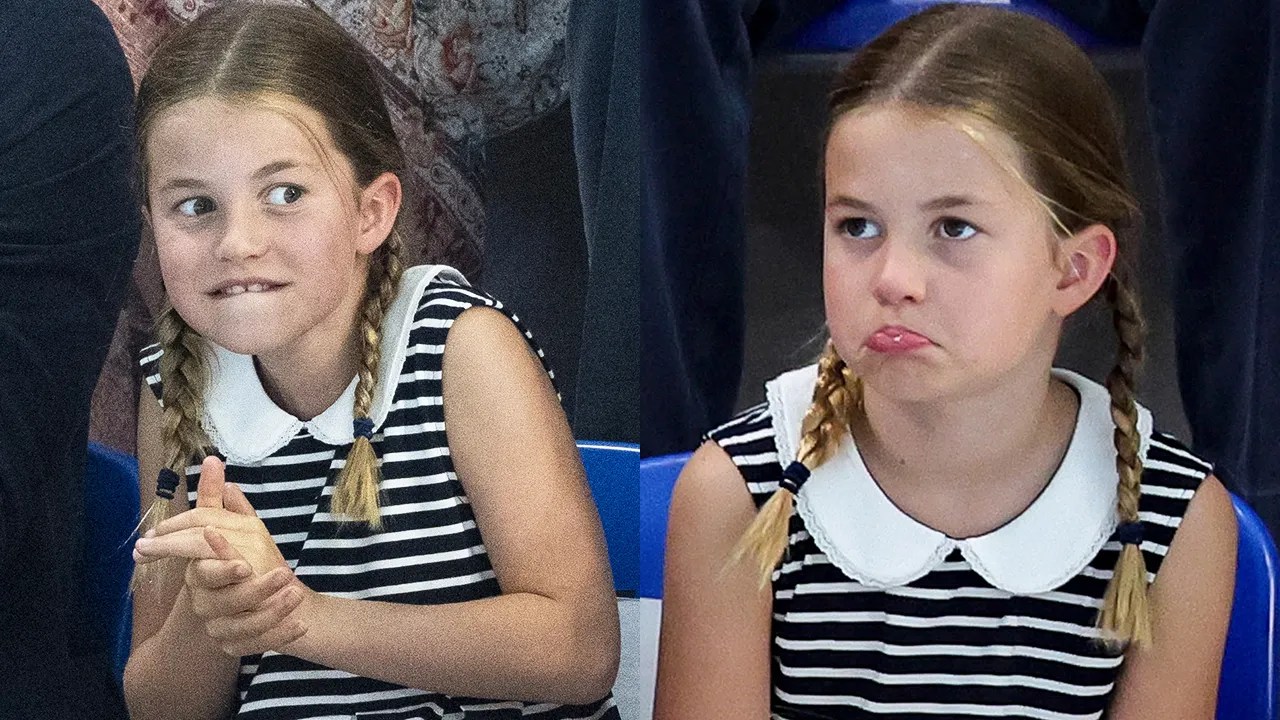In the royal world, the personal lives of family members often capture the public's attention, especially when it involves displays of affection. Princess Charlotte's parents, Prince William and Catherine, Duchess of Cambridge, have been known to share moments of tenderness that resonate deeply with their followers. Their public displays of affection (PDA) evoke a range of responses from fans and critics alike. Observing how these gestures are perceived provides insight into the dynamic between the royal family and the public.
As the daughter of the Duke and Duchess of Cambridge, Princess Charlotte is often in the spotlight. Her parents' interactions, whether playful, loving, or intimate, can spark conversations about royal behavior in contemporary society. While some view these moments as endearing, others question their appropriateness within the context of royal tradition. This dichotomy shapes the narrative around Princess Charlotte's parents' PDA and reflects broader societal attitudes towards affection in public.
Examining the reactions to Prince William and Catherine's affectionate displays reveals much about modern royalty. The balance between upholding tradition and embracing a more relatable public image is a challenge the royal family navigates daily. Understanding the sentiments surrounding Princess Charlotte's parents' PDA ultimately helps us comprehend how the monarchy adapts to changing societal norms while maintaining its historical roots.
Who are Princess Charlotte’s Parents?
Princess Charlotte's parents, Prince William and Catherine, Duchess of Cambridge, are prominent figures in the British royal family. Their roles extend beyond ceremonial duties; they are also dedicated parents who strive to provide a balanced upbringing for their children, including Princess Charlotte, Prince George, and Prince Louis. Their parenting style often garners public interest, especially in the context of their affectionate interactions.
| Name | Title | Date of Birth | Notable Achievements |
|---|---|---|---|
| Prince William | Duke of Cambridge | June 21, 1982 | President of the Football Association, Co-founder of the Earthshot Prize |
| Catherine Middleton | Duchess of Cambridge | January 9, 1982 | Patron of various charities, Advocate for mental health awareness |
What is PDA and Why Does It Matter?
Public displays of affection (PDA) refer to physical gestures of intimacy exhibited in public settings. These gestures can range from holding hands to hugs and kisses. In the context of the royal family, PDA is scrutinized due to the long-standing traditions that govern royal conduct. The importance of PDA lies in its ability to humanize public figures, making them relatable to the general populace.
How Do People React to Princess Charlotte's Parents' PDA?
The public reaction to Prince William and Catherine's PDA is varied. While many fans appreciate the warmth and connection it signifies, some individuals express discomfort regarding the appropriateness of such displays within royal protocol. The balance between tradition and modernity is continually tested, and this is evident in the responses to their affectionate gestures.
What are Some Memorable PDA Moments?
Throughout their marriage, Prince William and Catherine have shared several memorable PDA moments that have delighted and surprised the public. These instances often accompany significant events, showcasing their affectionate bond and genuine love. Here are some notable examples:
- At the 2018 Royal Wedding: The couple was seen sharing a loving gaze and holding hands, which melted hearts around the world.
- During Public Engagements: Whether at charity events or royal tours, their playful nudges and laughter reflect a strong partnership.
- Family Outings: From attending sports events to casual strolls, their interactions often highlight their commitment to family.
How Does This Affect Princess Charlotte?
As the daughter of Prince William and Catherine, Princess Charlotte is inevitably influenced by her parents' public interactions. Growing up in a loving environment, she witnesses the importance of familial bonds and affection. However, the scrutiny that comes with royal life may also impact how she perceives and expresses affection as she matures.
What Do Experts Say About Royal PDA?
Experts on royal etiquette often weigh in on the subject of PDA. Many argue that Prince William and Catherine's affectionate behavior is a refreshing change in the royal family, illustrating a modern approach to monarchy. Others caution that maintaining a degree of formality is essential to preserving royal traditions. This dual perspective highlights the ongoing debate regarding the appropriateness of PDA in royal contexts.
How Can We Interpret the Reactions to Princess Charlotte's Parents' PDA?
The reactions to Princess Charlotte's parents' PDA can be interpreted through various lenses. On one hand, many view their affectionate behavior as a sign of a healthy relationship, fostering positive family dynamics. On the other hand, some critics argue that such displays could undermine the gravitas typically associated with royal duties. Ultimately, these interpretations reflect broader societal attitudes toward love, affection, and the evolving image of the royal family.
What Lies Ahead for Princess Charlotte's Parents?
As Prince William and Catherine continue to navigate their roles in the royal family, their approach to PDA may evolve further. With shifting societal norms, they may find a balance between maintaining royal decorum and expressing genuine affection. Their journey will undoubtedly influence not only their family but also how the monarchy is perceived in the modern age.
In summary, the public's reaction to Princess Charlotte's parents' PDA serves as a fascinating case study of contemporary monarchy. Their affectionate gestures resonate with many, while also prompting discussions on tradition and modernity. Ultimately, Princess Charlotte's parents' PDA illustrates the delicate balance of being relatable while upholding royal values, a challenge that will continue to shape the royal family's narrative for years to come.
Unveiling The Enigma: Who Was Play As Cherry Angel?
Understanding The Historical Context Of Prima Nocta Meaning
Bryce James: The Rising Star's Height And More


